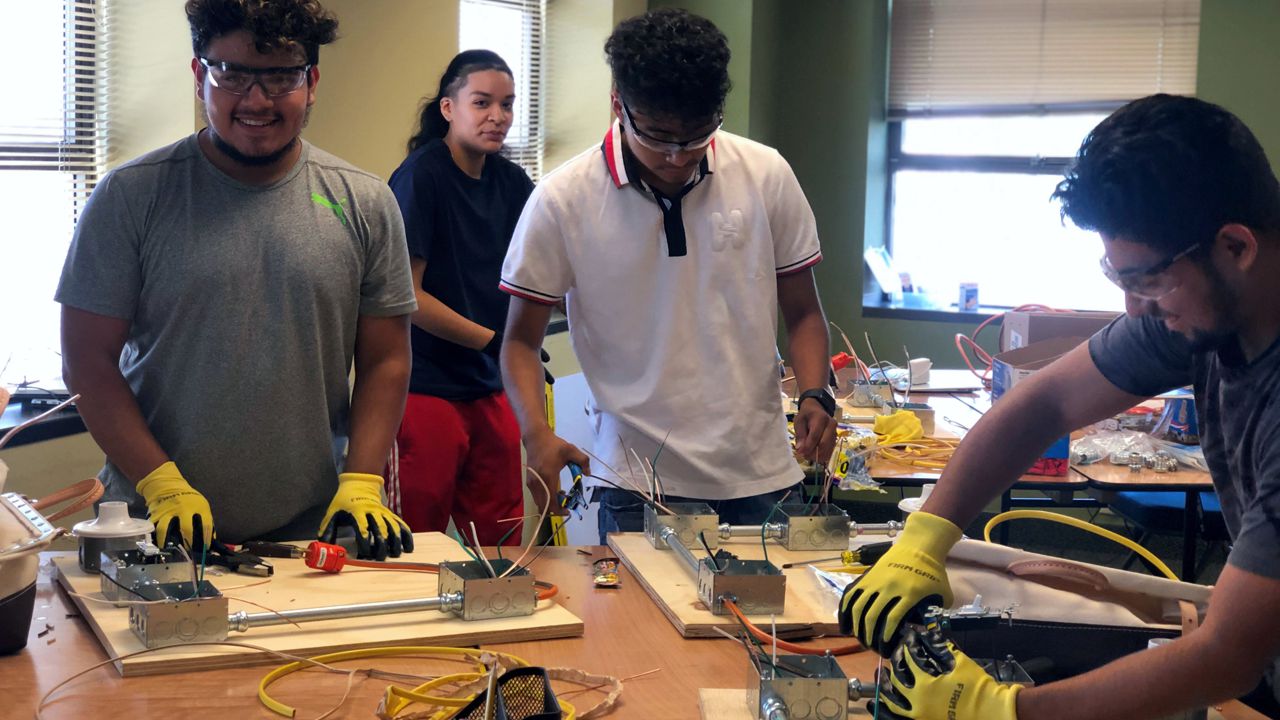Build a skilled workforce with a registered apprenticeship program ... more
Raleigh-Durham Electrical JATC

Industry
- Building Trades
The Raleigh-Durham Joint Apprenticeship Training Committee (JATC) is a training center for a multi-employer member group in the Triangle area. The JATC was established in 1934 and has offered registered apprenticeships for individuals working toward an electrical career with the International Brotherhood of Electrical Workers and its participating employers since 1980. The Raleigh-Durham JATC currently has almost 70 apprentices in the program working for 10 employers. These numbers are currently growing, with the JATC expecting 80 apprentices to be enrolled by the end of 2020.
Rebecca Axford is the JATC director and a strong proponent of apprenticeship for workforce development. “A potential apprentice needs to know that apprenticeship is a tier-one option and should be considered in the same light as college or a master’s program,” she said. “It’s work and a big commitment. But at the end of the process, that certification is just as valuable, or more, than a college degree.
“I think sometimes people believe apprenticeship is a secondary thing – a backup plan to college,” Axford said. “I really want to spread the message that apprenticeship should be considered at the same time as someone is making a career choice. The average age of an apprentice is 28; while these individuals bring more life experience, they have lost several years they could have spent completing their apprenticeships and building their careers.
“College does not pander to the tactile learner,” Axford said. “Many people need a tangible experience to breathe life into the book. They need to know the how and not just the theoretical why.”
Employers generally cover tuition, so apprentices earn while they learn. Axford added that many of her apprentices have bought houses and paid off debt (including prior student loans) before completing their apprenticeships.
“From an employer perspective, registered apprenticeship is a great tool,” Axford said. “Once the program is developed, it offers an accelerated process you can manage from the ground up. You can modify the training to what your needs are, and you can develop talent without that person needing to have previous experience. With a good attitude and willingness to learn, they walk in the door as a novice and walk out as an expert. Not too many programs can guarantee that the way apprenticeship does.”
Graduates of the four-year program receive a journeyworker’s certificate that is nationally recognized and a foundation upon which they can build their career.
Axford praised the entire ApprenticeshipNC team. “I appreciate and enjoy the relationships with the ApprenticeshipNC team,” she said. “They all make it seem like I’m their only customer, even though I know they’re spread thin.”
Axford is heavily involved in the community and promotes apprenticeship to anyone who will listen. “What do I tell businesses looking at starting a program? Do it. The ApprenticeshipNC team will make it an easy process for you to get started. They’ll help you with the structure of how to operate the program, connect you with community colleges or other groups to help, and modify the program to get what you need. Where else can you go to build your own training program and have help doing it? The first year you start, you are investing in the apprentices and their education. But by their second year, they’ve given it back to you. That training you’ve given pays dividends!”
